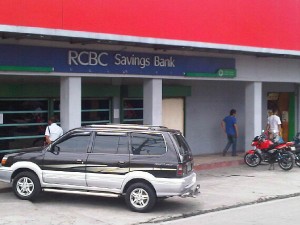BSP lifts bank branching restrictions

The Bangko Sentral ng Pilipinas has lifted restrictions on market penetration by banks, allowing them to put up as many branches as they want and in as many locations as they intend to as long as their capital can support such expansion.
The bank-branching liberalization, embodied in BSP Circular 759, is consistent with the central bank’s intention to make loans and other financial services meet the increasing demands of the growing Philippine economy.
As business activities rise, monetary officials said, the need for more bank products and services grow as well.
Officials also believed the liberalization would help achieve the goal of improving access to loans and other financial services for consumers and micro-enterprises even in remote areas.
“The limit set on the number of branches allowed to be applied by a bank for establishment at any time is hereby removed,” BSP Governor Amando Tetangco Jr. said in the circular. “A bank may apply to establish as many branches as its qualifying capital can support.”
The decision was approved by the central bank’s Monetary Board during its policy meeting last Thursday. Circular 759 will take effect 15 days following its publication in any newspaper of general circulation.
The BSP said that once a bank branching application is approved, the applicant bank must put up the branch within three years. Failure to put up the branch within the prescribed period will require the bank to reapply.
For banks that have existing BSP-approved branching permits prior to the issuance of Circular 759 but have yet to put up the branches, these are given a year to do so before the approvals are forfeited.
The BSP said, however, that it might withdraw the approval of bank branching application for other reasons. One is when the bank’s capitalization level becomes insufficient to support additional branches.
Another is when the bank is placed under the central bank’s prompt and corrective action program due to its failure to meet various regulatory requirements.
A third reason is when the bank is believed to have supervisory problems and is believed to be engaged in unsafe and unsound practices.
The bank-branching liberalization came following the release of a government report saying the Philippine economy, measured in terms of gross domestic product (GDP), grew by a surprising 6.4 percent in the first quarter from a year ago. The country’s GDP growth for the period is the second-highest in Asia after China’s 8.1 percent.
The government’s economic managers said the country’s first-quarter performance made the full-year target of between 5 and 6 percent attainable.
The liberalization also followed the release of the results of a BSP survey showing that 8 out of 10 Filipinos have no bank accounts. Central bank officials admitted that this reflected the inaccessibility of bank products and services, especially in areas outside Metro Manila.
